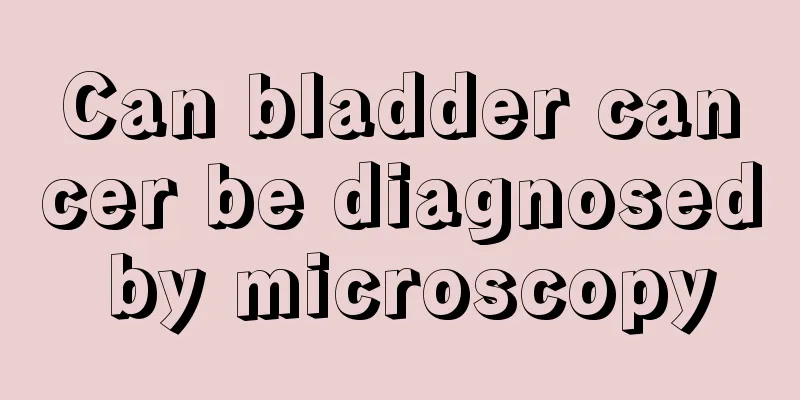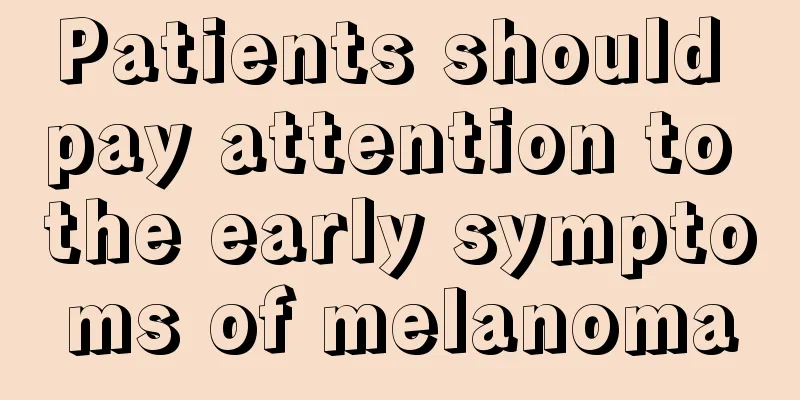What are the symptoms of rectal lesions?

|
The rectum is an important part of the human body. Once a lesion occurs, various adverse symptoms will appear. The most common ones are changes in bowel habits and characteristics, abdominal distension, abdominal pain, blood in the stool, anemia, etc. If these symptoms are not treated in time, more serious phenomena will occur, such as colon obstruction, intestinal perforation, etc. These two situations are very likely to be life-threatening. 1. Changes in bowel habits and characteristics Patients with rectal cancer may have more frequent bowel movements, but not much stool each time, or even no stool at all. They only excrete some mucus and blood, and have a feeling of incomplete bowel movements. 2. Abdominal distension and pain This is caused by intestinal dysfunction or intestinal obstruction. The pain is mostly concentrated in the middle and lower abdomen, mostly dull pain or bloating, and tends to gradually worsen. 3. Blood in the stool Because the lesion is close to the anus, the blood is mostly bright red or dark red, and the blood is often separated from the stool. Only when the amount of bleeding is heavy, the stool will appear brown and jam-like. Many patients with right-sided colon cancer have visible blood in their stools. This is also an early symptom of colorectal cancer. 4. Anemia When long-term chronic blood loss exceeds the body's hematopoietic compensatory function, the patient may develop anemia, an early symptom of colorectal cancer. Tumor obstruction: When the tumor grows to a considerable size or infiltrates the intestinal wall muscle layer, it can cause intestinal stenosis, shrinkage of the intestinal cavity, and obstruction of the passage of intestinal contents. 5. Colon obstruction It is one of the late complications of rectal cancer and can occur suddenly or gradually. It is mostly caused by tumor proliferation blocking the intestinal cavity or intestinal narrowing, or it can be caused by acute inflammation, congestion, edema, bleeding, etc. at the tumor site. 6. Intestinal perforation There are two types of rectal cancer complicated by perforation: perforation occurs locally in the tumor; proximal colon perforation is a complication of tumor obstruction. After perforation occurs, clinical manifestations may include diffuse peritonitis, localized peritonitis, or local abscess formation. Diffuse peritonitis is often accompanied by toxic shock and has a very high mortality rate. |
<<: What are the symptoms of consumptive disease?
>>: Will there be parasites if oysters are eaten raw?
Recommend
How to treat neurasthenia gravis?
The condition of mental fatigue syndrome is actua...
How to treat bone cancer
Among various malignant tumors, bone cancer has a...
Is female endometrial cancer contagious?
Is uterine cancer contagious? Experts say that ca...
What is the reason why the incision of thyroid cancer is so dry
Thyroid cancer patients have dry incisions, which...
Why do I have stomach pain after chemotherapy for nasopharyngeal cancer? What should I pay attention to in my diet after chemotherapy?
The purpose of taking treatment is to cure the di...
The pimples turned into hard lumps without squeezing
Many people get acne on their faces. For some peo...
What is the normal value of creatine kinase? What is Creatine Kinase?
Many people don’t know much about creatine kinase...
Top Ten Teratoma Specialist Hospitals in China
What are the top ten teratoma specialist hospital...
What should I do if I get acne due to staying up late
Working overtime and staying up late is a common ...
Experts explain the specific causes of laryngeal cancer
Laryngeal cancer is a malignant tumor that seriou...
What are the symptoms of lung cancer bone metastasis? 3 symptoms of lung cancer bone metastasis
Lung cancer is a malignant tumor that occurs in t...
What should I do if I have lung cancer
What should I do if I get lung cancer? Most peopl...
Is peony red peony?
Peony is both common and precious, and has high n...
Early symptoms of melanoma
Among many surgical diseases, melanoma is one of ...
How long does it take for the swelling of the forehead and eyes to go away
Many people are not very satisfied with their for...









